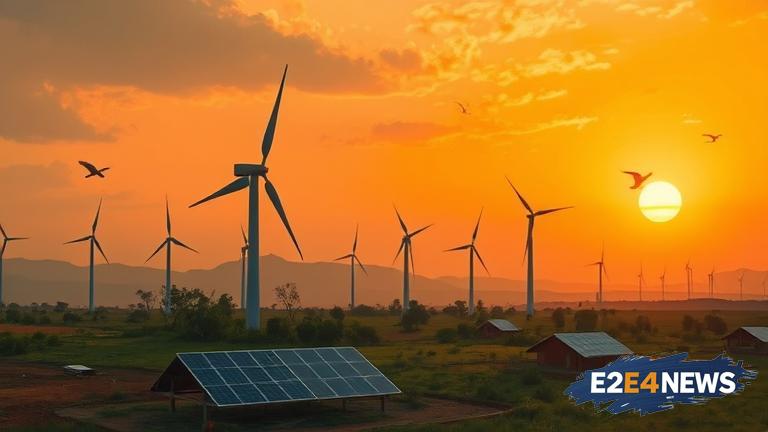The Bureau of Public Enterprises (BPE) has recently called for the establishment of alternative energy sources in Africa, citing the need to reduce the continent’s dependence on fossil fuels. This move is seen as a significant step towards embracing renewable energy and mitigating the impact of climate change. The BPE’s proposal comes at a time when the world is shifting towards cleaner and more sustainable energy sources. Africa, with its abundant natural resources, is well-positioned to take advantage of this trend. The establishment of alternative energy sources, such as solar and wind power, will not only reduce the continent’s carbon footprint but also create new job opportunities and stimulate economic growth. Furthermore, the use of renewable energy will help to improve energy access and security, particularly in rural areas where access to electricity is limited. The BPE’s call for alternative energy sources is also in line with the African Union’s (AU) commitment to promoting sustainable development and reducing greenhouse gas emissions. The AU has set a target of generating at least 300 gigawatts of electricity from renewable sources by 2030. To achieve this goal, African countries will need to invest heavily in renewable energy infrastructure, including solar panels, wind turbines, and hydroelectric power plants. The private sector is also expected to play a key role in the development of alternative energy sources, with many companies already investing in renewable energy projects across the continent. In addition, international organizations and development partners are providing financial and technical support to help African countries transition to renewable energy. The benefits of alternative energy sources are numerous, including reduced air pollution, improved public health, and enhanced energy security. Moreover, the use of renewable energy will help to reduce the continent’s reliance on imported fossil fuels, thereby saving foreign exchange and promoting economic development. However, the transition to alternative energy sources will require significant investment in infrastructure, technology, and human capacity. It will also require policy and regulatory frameworks that support the development of renewable energy. Despite these challenges, the potential benefits of alternative energy sources make them an attractive option for Africa’s energy future. In conclusion, the BPE’s call for the establishment of alternative energy sources is a timely and welcome development that has the potential to transform Africa’s energy landscape and promote sustainable development.
